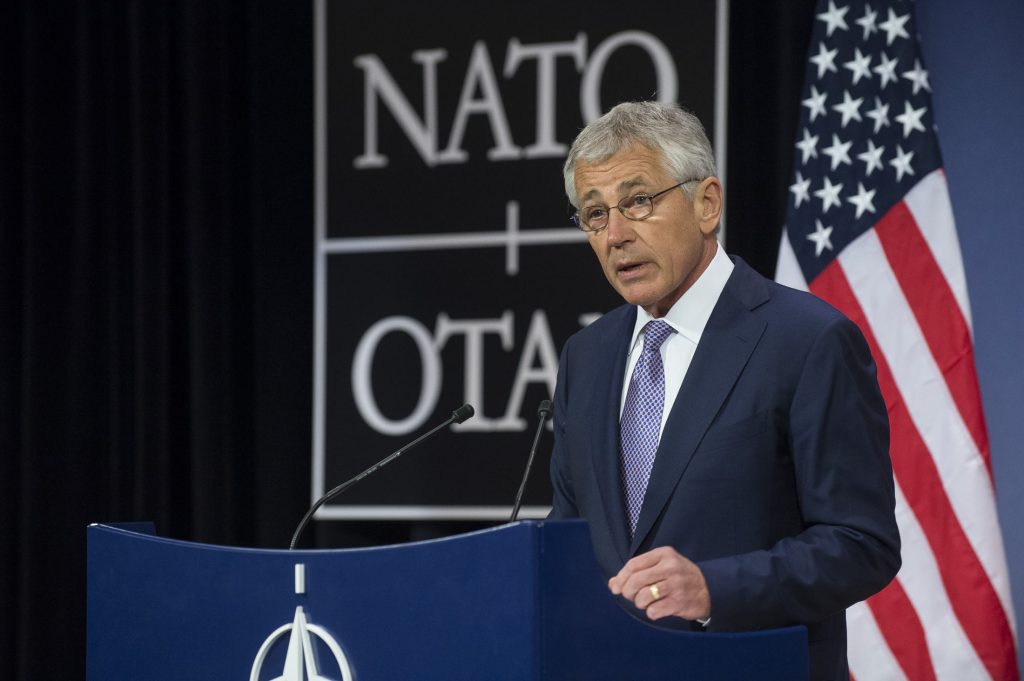
From Chuck Hagel, Department of Defense: NATO is as important today as it’s ever been. And as the world grows more complicated and interconnected, a strong, cohesive and capable collective security alliance will be an essential component of helping preserve peace, stability and freedom. . . .
The United States and its allies are transitioning in Afghanistan. We’re transitioning, not leaving. The United States has demonstrated an unwavering commitment to the future of Afghanistan. President Obama signed a strategic partnership agreement with Afghanistan. The United States committed to provide substantial financial support to the ANSF [Afghan National Security Forces] and development assistance to Afghanistan after 2014. That’s in line with the Chicago summit and Tokyo conference. . . .
In the session we just completed, ministers approved a concept of operations for this new non-combat mission. In the months ahead, NATO will develop an operational plan and further determine requirements in Afghanistan. The United States is committed to being the largest single contributor to this mission and to being the lead nation in the east and the south. We appreciate the commitments other nations are making, including the announcement by Germany and Italy, that they will serve as lead nations for the West and the North.
Turkey has also indicated they are favorably considering serving as the framework nation in Kabul. As our operations in Afghanistan evolve, NATO is at an important inflection point. It must adapt to meet new challenges and invest in the capabilities relevant to future threats.
How to do this in the face of fiscal and budget constraints was another major topic of discussion the last two days. The budget challenges we are experiencing in the United States, while maybe less severe than what many nations on this continent are confronting, are forcing us to prioritize and review every aspect of our defense enterprise.
I assured my fellow ministers that the United States is not considering any reductions that will affect NATO’s ability to fulfill its core task of collective defense, crisis management, and cooperative security. Our commitment to NATO remains iron-clad.
Still, over-dependence on any one country for critical capabilities brings with it risks. And as European defense investment continues to decline, the alliance’s dependence on the United States is growing. I shared with my fellow ministers that in order to justify to the American people the commitments that the United States will continue to make for deterrence and defense in Europe, we must be able to demonstrate that our NATO partners are willing to share — share in this burden. . . .
This is a defining time for the transatlantic alliance. Last week, President Obama and Secretary General Rasmussen agreed to have another summit of NATO leaders next year. This summit will help keep the alliance on a path for the future following the end of a combat mission in Afghanistan. I look forward to continuing to work with my fellow ministers to help defend our common interests and ensure a strong NATO for the future.
Excerpts from news briefing by Secretary of Defense Chuck Hagel at NATO headquarters. (photo: NATO)
Image: nato%206%205%2013%20Hagel.jpg
